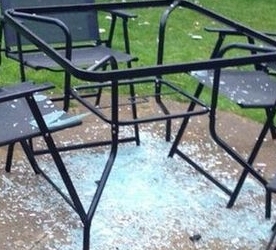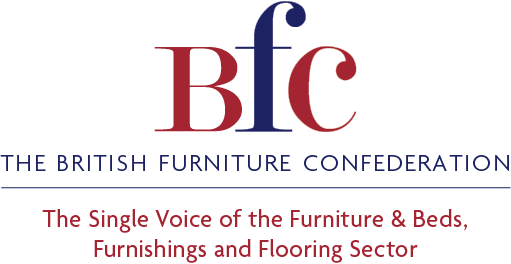 Last week, stories of ‘exploding’ glass topped tables hit the tabloids. The coverage obviously caused consternation for consumers owning or considering buying such items.
Last week, stories of ‘exploding’ glass topped tables hit the tabloids. The coverage obviously caused consternation for consumers owning or considering buying such items.
All glass topped tables are required by law to meet the UK’s General Product Safety Regulations. They are normally designed with safety in mind and are made from thermally toughened safety glass to minimise potential injuries.
The Furniture Industry Research Association (FIRA)1 and the Furniture Retail Quality Group (FRQG)2, have put together the following information and advice regarding toughened glass and glass topped tables.
Why does the glass shatter?
Instances of glass products shattering are rare, but toughened glass is actually designed to shatter into lots of small granular pieces when damaged. This is a safety feature to reduce the risk of injury, as it doesn’t form large and jagged shards like normal (annealed) glass. Toughened glass is also stronger and more resistant to heat than normal glass, which is why it is commonly used in products like car windows, oven doors, shower screens, glass cookware and furniture.
In rare instances, if toughened glass is damaged – for example by chips and scratches – it can lead to the glass breaking, seemingly of its own accord. Damage to the glass (not always visible) can get worse over time until it reaches a critical point when it may shatter. This is not a fault with the product or design, this is how the toughened glass is intended to behave if damaged.
An uncommon, but unavoidable reason for glass breaking is nickel-sulfide (NiS) inclusions. These tiny particles can get trapped in glass during manufacturing. In toughened glass they sometimes expand slowly and can reach a point where they cause the glass to break.
Most major retailers carry out their own product testing to assess the suitability of the glass used in furniture and the final product itself; it is recommended that retailers (and consumers) should request evidence of up to date, appropriate test certificates before they purchase such products.
How to care for glass topped tables
Toughened glass can withstand impacts but is not indestructible. Damage is most likely to occur if the glass is struck by a hard object, dropped on its edge onto a hard surface or, for garden furniture, blown over in strong winds.
To reduce the risk of damage it is recommended that:
- During assembly do not lay the glass directly onto hard or rough surfaces. Lay the glass on a blanket or cardboard. You could even use the box.
- When lifting or moving the product, ask for someone to lend a hand. Trying to move a product on your own can lead to accidents.
- Not using furniture if any parts are missing or broken. Contact your retailer immediately.
- Placing very hot or very cold items, such as saucepans or barbecues, directly on the glass surface. Extreme temperature differences over small areas can cause damage, which could in turn lead to shattering.
- Not sitting or standing on the glass surface.
- Not striking the glass with hard or pointed items, or use the glass as a chopping surface.
- Not dragging rough or heavy objects over the top of the glass.
- Using place mats, coasters and table cloths to help protect against scratches and accidentally dropped items.
- Regular cleaning to make sure there is no grit on the glass.
- The glass should not be cleaned with washing powders or any other substances containing abrasives, since these substances can scratch glass.
- If the table has a parasol, make sure the edge of the parasol cut-out has a protector in place. Also, always use a weighted parasol base, and remove the parasol in windy conditions. Parasols can put pressure on the table top or even blow the table over in windy weather.
- (For tables that can be used outdoors) Keeping the table covered when not in use to protect the glass from the weather and accidental damage.
If you have any concerns regarding your product please contact your retailer immediately
Notes
- About the Furniture Industry Research Association (FIRA)
Established over sixty five years ago, FIRA provides invaluable technical support to the entire furniture supply chain and funds projects for the benefit of the industry. For more information, visit www.fira.co.uk.
- About the Furniture Industry Quality Group
The Furniture Retail Quality Group (FRQG) consists of representatives from many of the major furniture retailers in the UK. The Group provides guidance on technical issues that can have an impact across the furniture industry.
